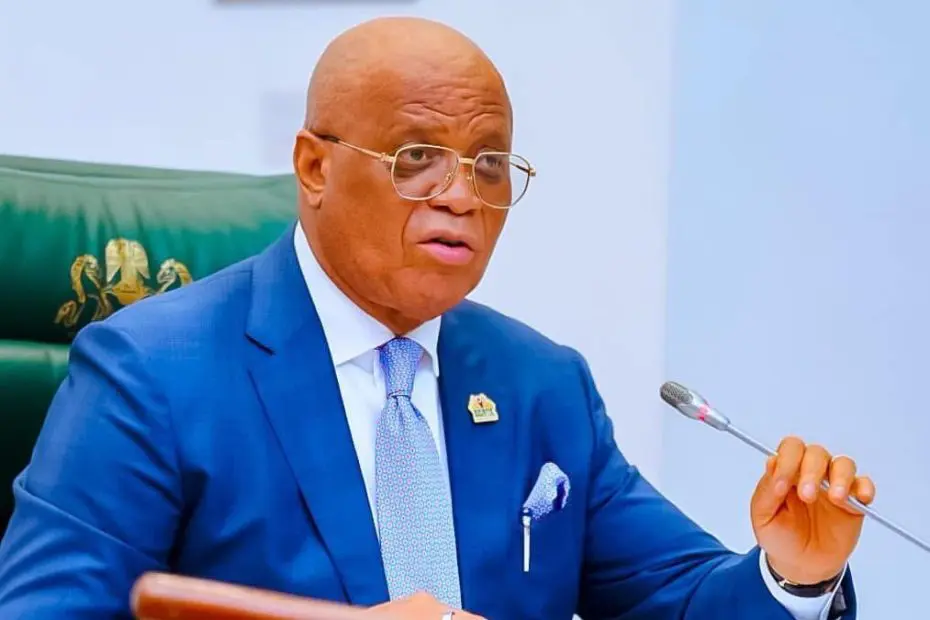Akwa Ibom State Governor, Umo Eno, has reiterated his unwavering loyalty to his political godfather, former Governor Udom Emmanuel, dismissing any claims of a rift between them despite his recent defection from the Peoples Democratic Party (PDP) to the All Progressives Congress (APC).
Eno, who assumed office in May 2023 after winning the gubernatorial election under the PDP banner, surprised many political observers when he officially joined the APC in June 2025. The move was seen as a strategic alignment with the ruling party at the federal level, especially as President Bola Tinubu’s administration continues to consolidate its influence across the country.
However, questions immediately arose about the impact of this defection on Eno’s relationship with his mentor and predecessor, Udom Emmanuel.
Udom Emmanuel served as Akwa Ibom State governor from 2015 to 2023, overseeing a period marked by infrastructural development and efforts to diversify the state’s economy. A prominent figure in the PDP, Emmanuel was widely regarded as a kingmaker in the state’s political landscape, having nurtured and supported several rising politicians, including Eno.
Speaking during a pro-APC rally held in Eket, one of the key towns in Akwa Ibom State, Governor Eno sought to quell speculation of discord between him and Emmanuel. He described Emmanuel as not just a predecessor but his political father and mentor, emphasising that their bond transcends party lines.
“Let me make it abundantly clear that there is no issue between me and my political father, former governor Udom Emmanuel. There is no issue whatsoever,” Eno said. “I visit him regularly, we talk often, and our relationship remains strong. I am his political son. He brought me out to run for governor, and for that, he will always have my respect and support.”
Eno restates why he joined APC
Eno further explained that his decision to join the APC was motivated by the desire to better position Akwa Ibom State for federal attention and resources, especially in light of the APC-led federal government’s policies and development agenda.
“My defection was not out of disrespect or rebellion. It was a strategic move to ensure that Akwa Ibom gets the federal attention and development it deserves under President Bola Tinubu’s administration,” he said.
Political analysts note that defections such as Eno’s are increasingly common in Nigerian politics, often driven by the need to align with the ruling party at the centre to maximise access to federal resources and political goodwill.
Despite the political realignment, Eno’s comments suggest a continuation of the close personal and political relationship with Emmanuel, who remains a key player in Akwa Ibom’s political scene and a respected figure within the PDP.
This affirmation is likely to reassure supporters of both leaders and stabilise political dynamics within the state ahead of upcoming local and national elections.



